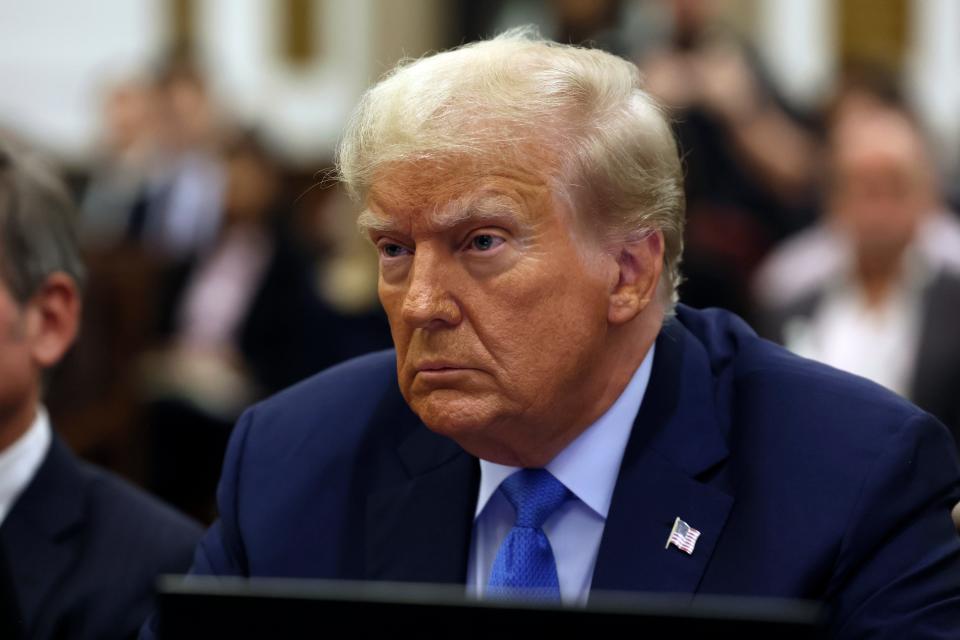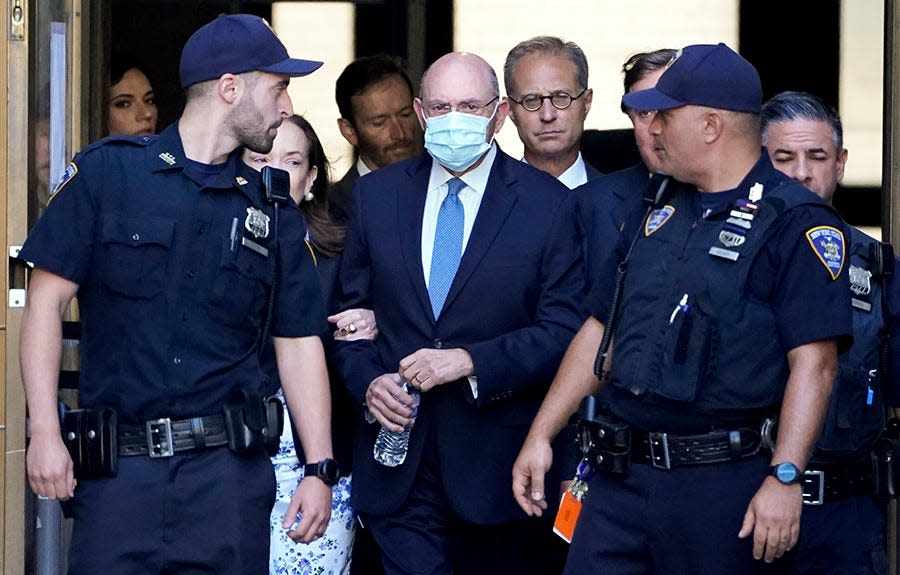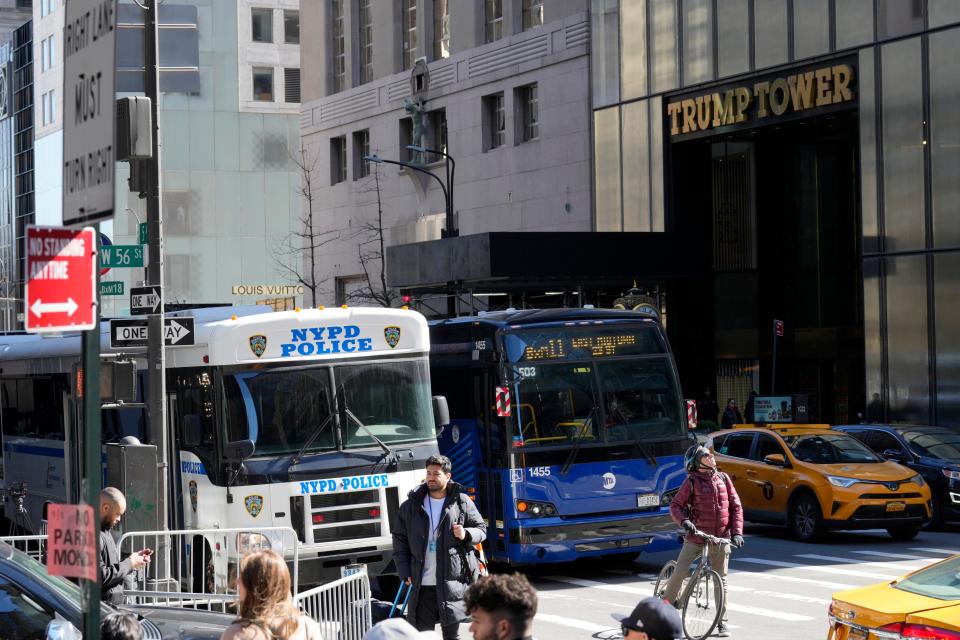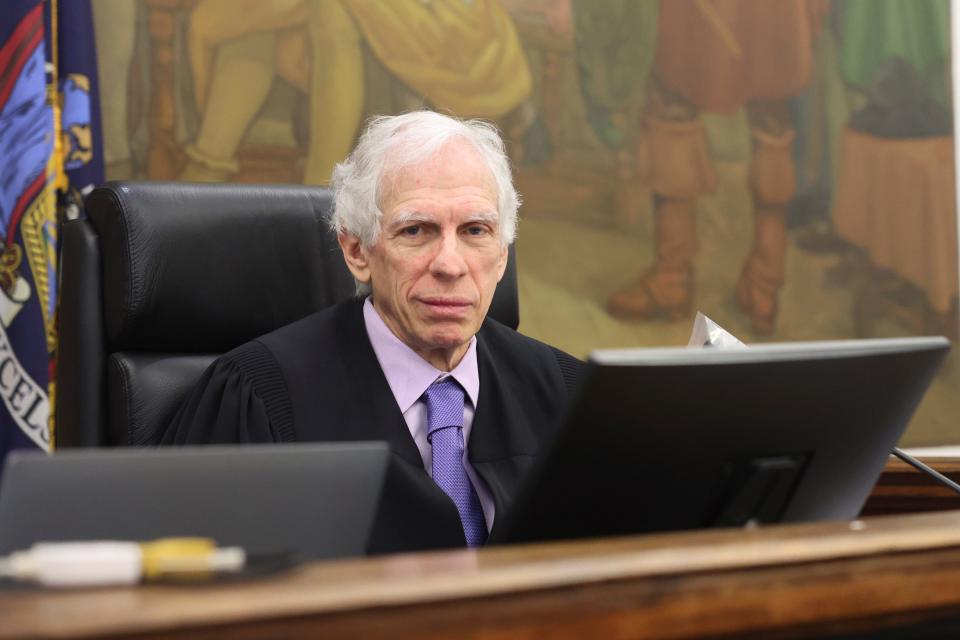Ruled a fraud but still fighting: What’s at stake in Donald Trump’s New York civil trial
Facing charges with combined maximum prison sentences totaling hundreds of years, you would think Donald Trump's several criminal cases would be all he can think about.
But for weeks, the former president has been posting on social media about his New York civil fraud trial, sometimes even coming to court when he's not required to. That persistent focus − decrying the case as a "sham," the trial as "very unfair," the state attorney general as a "political hack," and the judge as a "radical Trump hater" − reflects the real peril to his finances and reputation.
"Over the years Trump has said things like 'the beauty of me is that I’m very rich,' and 'nobody knows how rich I really am,'" said Trump biographer Michael D'Antonio. "The facts are turning out to be far less impressive than he led people to believe."

For a case that doesn't threaten Trump's liberty, the stakes are indeed high. From hundreds of millions of dollars to the ability to ever run a New York corporation again to the state of his public image as a titan of business, Donald Trump has a lot to lose.
Trump fights to save his business − and his image
The 2024 Republican presidential frontrunner is in a tooth-and-nail battle against a lawsuit by New York Attorney General Letitia James in which the judge, government lawyers, and numerous witnesses have called the former president a fraud.
He's sparred with the court over gag orders while attacking key players on social media and from the witness stand, where his three eldest children have also been grilled.
In September, Judge Arthur Engoron delivered a major blow, ruling that Trump had engaged in repeated fraud by inflating the value of his real estate − including the former reality star's own Trump Tower apartment. Engoron ruled that Trump's New York business certificates must be cancelled, a penalty that the 2024 GOP presidential frontrunner called "the corporate death penalty." An appeals court later put the business certificate order on hold.
The judge's initial ruling stunned onlookers over its suggestion that − if the decision survives an appeal − some of Trump's companies would have to be dissolved.
Staring at the corporate gallows
"I believe the intended effect of the order is indeed that no business entity owned or controlled by Donald Trump would be permitted to do business in New York state," Celia Bigoness, who runs the Entrepreneurship Law Clinic at Cornell Law School told USA TODAY.
Staring at the corporate gallows, Trump has mounted an expansive defense in the ongoing trial, which is now examining allegations that he, his eldest two sons, and two former executives engaged in insurance fraud and falsified business records. Unlike the judge's previous finding of fraud, the remaining allegations involve questions about the defendants' intentions.
"His criminal trials are important, but whether he's in essence put out of business has to be extremely critical to Mr. Trump and his relatives," said Paul Golden, an attorney at the law firm Coffey Modica who focuses on appeals and insurance and real estate litigation.
"This will have a serious effect on all sorts of things, including their brand," Golden said.
A Trump campaign spokesperson didn't respond to a request for comment.
'Death knell' for Trump doing New York business
James, the state attorney general, wants to go even further than Engoron has so far been willing to. She is asking the judge to bar Trump and the Trump Organization from buying New York commercial real estate or getting loans from New York banks for five years, and to permanently block him and his two oldest sons, Don Jr. and Eric, running or serving as an officer of a New York company.
Together, those penalties "would effectively be the death knell for Trump doing business in New York state altogether," Bigoness said.
James' bid to cut Trump off from banks in the state could have an especially large impact given New York City's role as a global financial capital, said Brian Quinn, a Boston College law professor who researches corporate law.
"It's the center of finance − not being able to get a loan from a bank registered in New York is a problem for them," Quinn said.

Potential hits outside New York
On its face, the trial in Engoron's courtroom is a New York affair. But experts said negative rulings in Manhattan could squeeze Trump well beyond the state's borders.
If Engoron's fraud ruling withstands appeal, it could become more difficult for Trump, whose name graces buildings and golf courses in India, the Philippines, Scotland and Dubai, to do business abroad.
In overseas projects, "part of the licensing requirement is to ensure that the foreigners who are coming here are the good ones, not the bad ones, and being adjudicated a bad one by a U.S. court would not help his ability to do business internationally," Quinn said.
The case could also hurt Trump's ability to get favorable loans outside New York because loan agreements typically go through a bank's risk committee, Quinn added. If a committee says, "'Oh, it's Donald Trump, the guy who was found liable for fraud,' it becomes harder to get loans, or it becomes harder to get loans at good prices," he said.

Then there's the question of how losing in court would affect the valuable Trump brand. That's where Trump's attacks on James and Engoron on social media and even from the witness stand could be part of a broader strategy.
"Among people for whom Trump's message has resonated, this testimonial grandstanding allows him to undermine the persuasiveness of Justice Engoron's adjudication and, by that, its efficacy," said City University of New York law professor Gregory Louis, who specializes in corporate law.
A loss and cash shortfall? 'All the things he loves he'd have to sell'
The former president and his two oldest sons, along with former Trump executives and several business entities, could also be on the hook for what James' office has estimated to be a whopping $250 million in allegedly ill-gotten gains.
"If he doesn't have cash, he'd have to sell assets, which would be a problem," Quinn said. "All the things he loves he'd have to sell."

Testifying in November, Trump left no doubt Engoron had hit him where it hurts. "He called me a fraud, and he didn’t know anything about me!" Trump exclaimed.
And the trial's not over.
"From the moment he became a public figure, falsely suggesting he was already a real estate mogul, money and business acumen have been at the heart of Donald Trump’s self concept," D'Antonio said. "Now that the court is dealing with genuine documents and knowledgeable witnesses, no one has to simply take the former president’s word for things."
This article originally appeared on USA TODAY: Ruled a fraud but still fighting: the stakes of Trump’s NY civil trial


